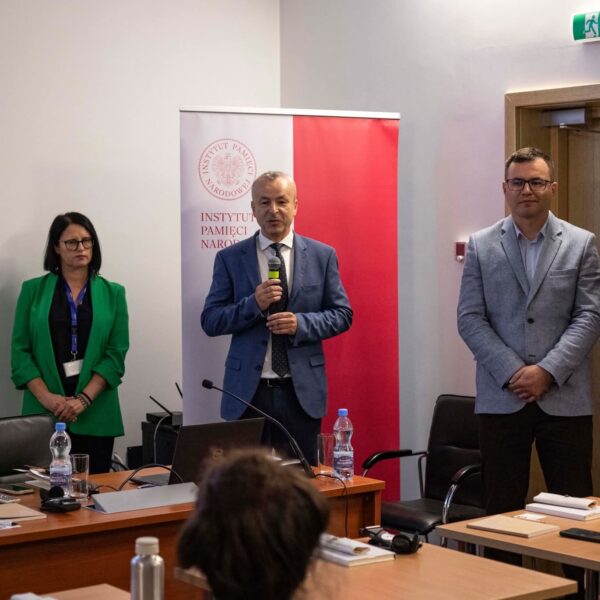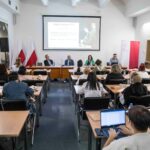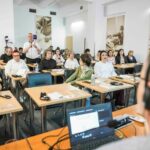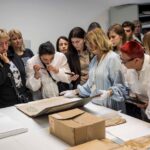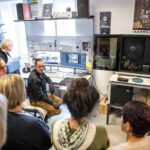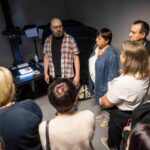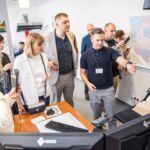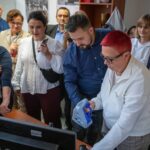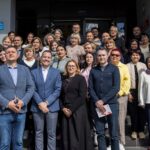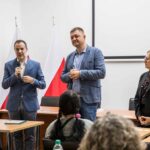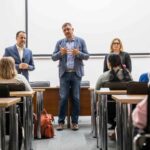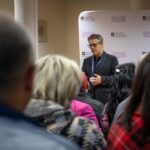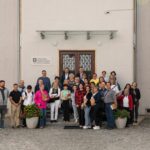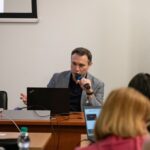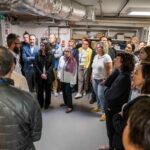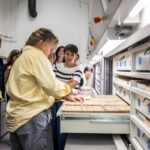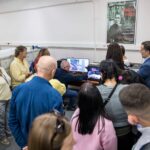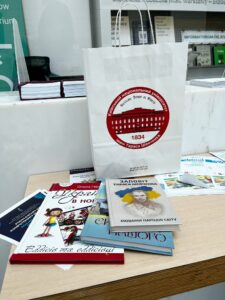«Digitisation, digital preservation and emergency response»: results of training under the International Council on Archives project
In September this year, the Scientific Library took part in the second part of the training programme from the International Council on Archives (ICA). Ukrainian archives and libraries had the opportunity to put the theoretical knowledge they had acquired into practice during seminars in February 2025 https://library.knu.ua/golovni -novyny/oczyfruvannya-ta-czyfrove-zberezhennya-arhiviv-pidsumky-navchalnoyi-programy-ica.html. The event was organised by the Archives of the Institute of National Remembrance (AIPN) in cooperation with the International Council on Archives (ICA), the International Alliance for the Preservation of Heritage (ALIPH) and the State Archival Service of Ukraine.
The training took place at the Institute of National Remembrance. The first day of training began with greetings and presentations by representatives of the AIPN. They presented the ‘Digital Archive’ system and its modules. Participants from Ukraine were able to see how digitisation processes work in practice: from ‘ordering’ the scanning of books and microfilms to organising photographs, audio and video tapes in the digital archive.
A special opportunity during the training was to visit the AIPN digitisation workshops. In real-life conditions, participants learned about what scanning rooms should be like, how to prepare documents, and the secrets of restoration. We would like to thank our Polish colleagues for their detailed explanations and willingness to share their experience.
All the scanning equipment we saw was analysed with the help of Andriy Chernevych, an expert from the International Council on Archives. During his part of the training, participants also had the chance to consolidate their knowledge of prioritising documents for scanning and learn about several ways of ensuring the scanning process in an institution.
In terms of responding to crisis situations, Ms. Amira Sadik Ali explained how to assess risks and damage and how to develop emergency response procedures. The trainer also shared assessment forms for archival institutions in the context of risk management. During the second day of training, participants did a lot of practical work: they simulated crisis situations, planned for the rescue of collections, and catalogued damaged artefacts.
The classes taught by trainer Marina Chernyavskaya were also practical. This part of the training focused on metadata for scanned documents and formats for storing them. In addition, participants applied the international ISAD(G) standard to describe their own documents.
During an excursion to the Novi Akty archives in Warsaw, its director, Mariusz Olczak, showed us the storage facilities and the work of the restoration and digitisation departments. Metal shelves, special fire extinguishing systems, and well-thought-out room layout — this is the level of security and respect for heritage that we want to bring to Ukraine.
Digital preservation is not a matter of ‘scan and forget.’ It is a process that begins with the selection of equipment and continues with the creation of descriptions, work with metadata, and ensuring access. Sometimes a state-of-the-art scanner proves too complicated for the operator, and then it is not the machines that become more valuable, but the experience and knowledge that we share with each other.
The last day was a wrap-up day. ICA Director Carlos Serrano Vázquez, Deputy Head of the State Archival Service of Ukraine Oleksandr Lashko, and AIPN Director Marzena Kruk emphasised that such meetings not only transfer knowledge but also build bridges of trust and cooperation.
It is also symbolic that at the same time, our M. Maksymovych Scientific Library continued another important project — replenishing the shelves of European libraries with Ukrainian books. This is very appropriate: we not only preserve, but also share. After all, cultural heritage should live a double life — protected in archives and at the same time open to the world.

